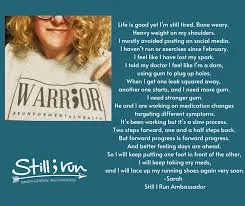Injuries can be a devastating setback, particularly when you have an ambitious race planned. They may even spark depression and suicidal thoughts in some people.
Though running injuries can be painful, recovery is possible. To maximize your mental well-being and speed up the healing process, consult a physiotherapist and physical therapist for guidance.
Talk to a Psychiatrist
A psychiatrist is an expert in mental health who can offer guidance on coping with injuries. They may also prescribe medications to help manage symptoms and enhance quality of life.
Before visiting a psychiatrist for the first time, do your due diligence and research reviews online. Speak with past patients to get an idea of their personality traits.
Psychologists offer a range of specialties, so finding one that meets your requirements is essential. You don’t want to end up with a doctor who cannot comprehend your issues or administer inadequate treatment.
A good psychiatrist is a trusted confidante and partner in your recovery from mental illness. However, for this relationship to succeed, you must be on board and open with each other about thoughts, feelings, and emotions.
Stay Active
No matter the cause of your injury or need for a break from running, being sidelined can have an adverse effect on your mental health. But if you keep up with social activities, practice healthy habits, and eat nutritiously during this period, it will help keep you mentally strong and help ward off depression.
You can also contact those in your support network and share how you’re feeling. They may be an excellent source of encouragement and understanding, especially if they have experienced similar injuries.
Many people prioritize physical activity in their social lives, whether that means joining a running group, hitting the weights at the gym, playing sports with friends, or taking yoga classes.
Injuries can disrupt our habits, leading to loneliness or depression. But having a network of supportive friends and family around us can help prevent that from occurring.
Stay Positive
No matter the severity of your hamstring or knee injury, staying positive is paramount to recovery. Studies have repeatedly demonstrated that having a positive outlook can help you heal faster and get back to running sooner.
Running can become demotivated when they must take a break from their usual training regimen, especially if they are close to reaching goals they had before the injury. While accepting that your original goals may not be reached is difficult, setting new, realistic, and achievable objectives will help keep motivation levels high.
You can always enlist the support of friends and family, even if they aren’t runners. Find someone in similar circumstances and ask them how they managed to stay motivated and positive while healing from their injury. This could include reading a book, watching a movie, going to the gym, or taking up an exciting new hobby.
Stay Motivated
Running injuries can be discouraging, but it’s essential to stay motivated. If you’re feeling down about being injured, try distracting yourself with activities that make you feel good.
Supportive friends and family can be an uplifting source of motivation during recovery. Talking to someone who understands your situation helps put things into perspective, especially if they’ve gone through similar experiences.
Remember, your body is healing, and it may take some time to resume running. While there may be setbacks, know that these are part of a normal recovery process, and things will improve with time.
While you’re recovering, it’s wise to switch up your workout routine. Varying mileage, intensity, and surfaces can help avoid overuse injuries. Plus, this is an ideal time to incorporate other exercises that will aid in recovery, such as weight training or core strengthening.
If you’re in need of a professional to help you get back on track, consider mobile physical therapy as an option. Don’t hesitate to contact us and explore the services we offer at Direct Orthopedic Therapy.



